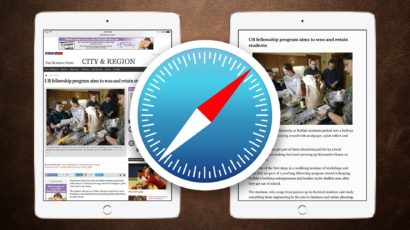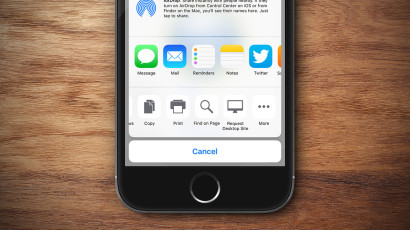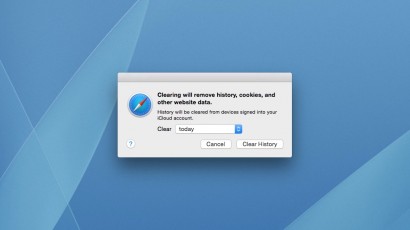Safari has been the default Web browser on the Mac for more than a decade, and while it’s a great browser that plays well across Apple’s device ecosystem, many Mac owners prefer to use third party browsers like Chrome or Firefox. If you’re one of these Safari-eschewing users, be sure to change your Mac’s default Web browser setting for the best experience. Here’s how to do it.
How to Use and Customize Safari Reader in iOS
Some websites go overboard with unnecessary clutter surrounding the content you’re trying to read. When you simply want to focus on an article or story, you can turn to Safari Reader, a feature in Apple’s Safari Web Browser which extracts only the information you want and nothing else, letting you read in peace. Here’s how Safari Reader works in iOS, and how you can customize its look to suit your reading preferences.
Test Your Website’s Mobile Layout With Safari Responsive Design Mode
Mobile devices are the future of the Web, making a website’s responsive layout crucial to ensuring a good user experience. While there are many tools that help web designers test responsive designs, a new feature in Safari for OS X El Capitan makes the process quick and easy. Here’s how to use Responsive Design Mode in Safari 9.
The Fastest Way to Request a Desktop Site in Safari for iOS 9
Safari for iOS lets users request the desktop version of certain websites that display separate mobile versions by default. You may know how to request the desktop site using the iOS 9 share menu, but here’s an even faster way that’s hidden right in the Safari address bar.
Advertisement
How to Easily View the Desktop Version of a Website in iOS 9 Safari
Some websites offer dedicated mobile versions that are designed for the smaller screens on smartphones and tablets. But sometimes these mobile versions don’t have all the information or options we need. Here’s how to request and view the full desktop layout of a website in Safari for iOS 9.
How to Change the Default Search Engine in Safari for Mac OS X
Google has long been the default search engine in Safari for OS X, but privacy concerns have led many users to seek an alternative. Here’s a quick tip on how you can change the default search engine in Safari.
How to Unblock Out of Date Versions of Flash in Safari for Mac OS X
Apple now blocks users from running Adobe Flash Player if their version is out of date or has known security vulnerabilities. While most Mac users will do well to heed Apple’s warning, those who need to run older versions of Flash and are willing to accept the risks of doing so can manually circumvent Apple’s Flash block in OS X. Here’s how to do it.
How to Turn Off Spotlight Suggestions in Safari Search for OS X Yosemite
New in Safari for OS X Yosemite are Spotlight Suggestions — for example, locations in the Maps app, individuals in the Contacts app, or references to Wikipedia — when searching in the Safari address bar. Depending on how you prefer to search, however, these Spotlight Suggestions may simply be in the way. Here’s how to turn them off.
How to Disable Safari Power Saver in Mac OS X
Safari Power Saver is one of a number of new energy-saving features added to OS X in recent years, but its ability to block certain content can sometimes get in the way of a user’s workflow. Here’s how to manage and disable this feature, which doesn’t always produce the best browsing experience.
How to Clear History But Not Website Data in Safari for OS X Yosemite
With Safari 8, introduced with OS X Yosemite, Apple made a quiet change that is causing a bit of frustration for users. The latest version of Apple’s Web browser now clears all website data when a user elects to clear their browser history. In previous versions of Safari, history and website data — items such as cache and cookies — were cleared separately via two different methods. Apple’s new approach of clearing both history and website data together is an issue…









